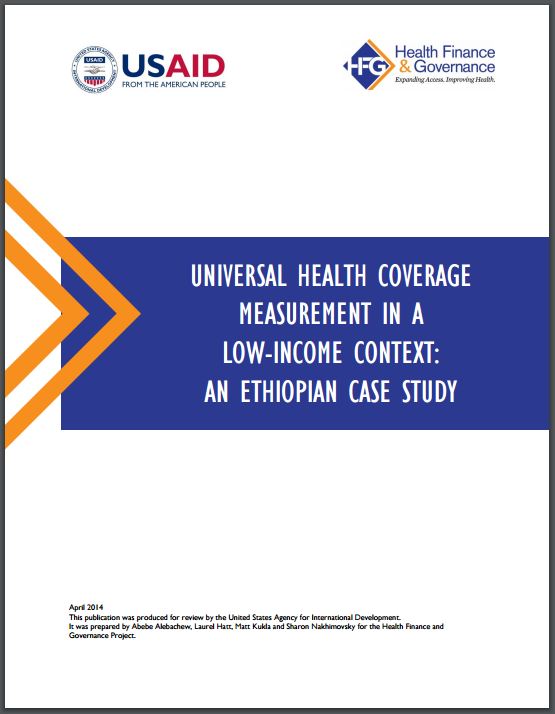Universal Health Coverage Measurement in a Low–Income Context: An Ethiopian Case Study
Categories: Publications, Universal Health Coverage
Resource Type: Case Study
 Authors: Abebe Alebachew, Laurel Hatt, Matt Kukla, and Sharon Nakhimovsky
Authors: Abebe Alebachew, Laurel Hatt, Matt Kukla, and Sharon Nakhimovsky
Published: 04/2014
Resource Description:
Universal health coverage (UHC) as a goal of health policy has gained wide acceptance at country and global levels since the publication of the World Health Report 2010 and is seen as a critical component of sustainable development. UHC has also been listed as one of the possible goals of the post-2015 development agenda. To achieve these goals, however, policymakers must first be able to define, measure, and monitor UHC.
The objective of this case study was to analyze Ethiopia’s approach to monitoring progress towards UHC and consider the implications of Ethiopia’s experience with UHC measurement for other low-income countries and the international community. The study achieved this objective by (i) exploring indicators that Ethiopia is already using to measure progress towards UHC; (ii) evaluating Ethiopia’s institutional capacity to collect data for and generate a set of proposed UHC indicators; and (iii) providing recommendations based on findings.
Download



